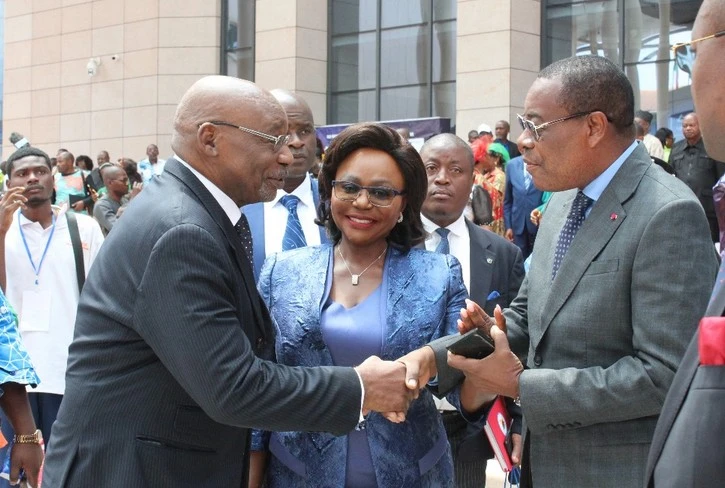
Judith Yah Sunday, CEO of Cameroon Telecommunications (CAMTEL), has laid out an ambitious blueprint to reshape the country’s digital future.
Speaking at the Paul Biya Glass Palace on June 24, she presented a vision aimed at propelling Cameroon to the forefront of digital innovation, with infrastructure expansion and entrepreneurial connectivity at its core.
During the ICT Entrepreneurial Synergies Days, the CAMTEL chief announced that the company’s turnover reached 207.4 billion CFA francs in 2023, marking a 90% growth since 2018.
“We recorded a 90% growth in our turnover compared to 2018, with a net profit of 11.2 billion FCFA, of which 4.6 billion was returned to the State,” she told a crowd of lawmakers and business leaders.
Appointed in December 2018 as the first woman to lead a major public enterprise in Cameroon, Judith Yah Sunday has steered CAMTEL through a sweeping transformation.
With over 25 years of experience and a doctorate in telecommunications, she has prioritized extending internet access nationwide.
Under her leadership, the Blue brand has expanded 4G LTE services to more than 160 municipalities, positioning CAMTEL as a key player in Cameroon’s push for affordable digital access.
The launch of Blue Money, the company’s mobile payment platform, is expected to enhance financial inclusion, particularly in rural regions.
One of the standout achievements is CAMTEL’s fiber optic infrastructure, now spanning over 12,000 kilometers.
“We have deployed more than 180,000 Fiber To The Home (FTTH) ports, capable of connecting thousands of homes and businesses,” said Judith Yah Sunday, with a target of 230,000 ports by the end of 2025.
CAMTEL also plays a strategic role in international connectivity, operating several undersea cables including the South Atlantic Inter Link to Brazil, as well as WACS, SAT-3, and the Nigeria-Cameroon Submarine Cable System.
The company’s involvement in the Medusa project, linking Africa to Europe, aims to reinforce Cameroon’s digital sovereignty.
In sectors like health and education, CAMTEL has built critical partnerships. Hospitals are being connected to secure telemedicine networks, while universities, campuses, and multimedia classrooms benefit from advanced interconnectivity.
Security has also become a focus, with over 3,000 surveillance cameras installed and support systems deployed for national taxation, customs, human resources, and biometric passport services.
But Judith Yah Sunday raised alarms about frequent sabotage of telecom infrastructure.
“Every cable cut, every sabotaged view, every fiber optic cable ripped out instantly plunges entire regions or even neighboring countries into digital silence,” she warned.
Calling for tougher legal penalties, she cited countries such as Uganda, Kenya, Taiwan, and the United States, where such acts are treated as threats to national sovereignty.
The event concluded with a partnership between CAMTEL and the Cameroon Business Incubator Network, aimed at providing private higher education startups with enhanced digital access.
“An incubator without the Internet, you will agree, is a bit like a bill without promulgation: it has no impact,” the CEO said, underscoring the need for connectivity in entrepreneurial development.
Judith Yah Sunday’s strategy echoes President Paul Biya’s 2005 declaration that “the development of Cameroon will come through information and communication technologies.”
With every fiber laid and port activated, CAMTEL is bringing that vision closer to reality.



